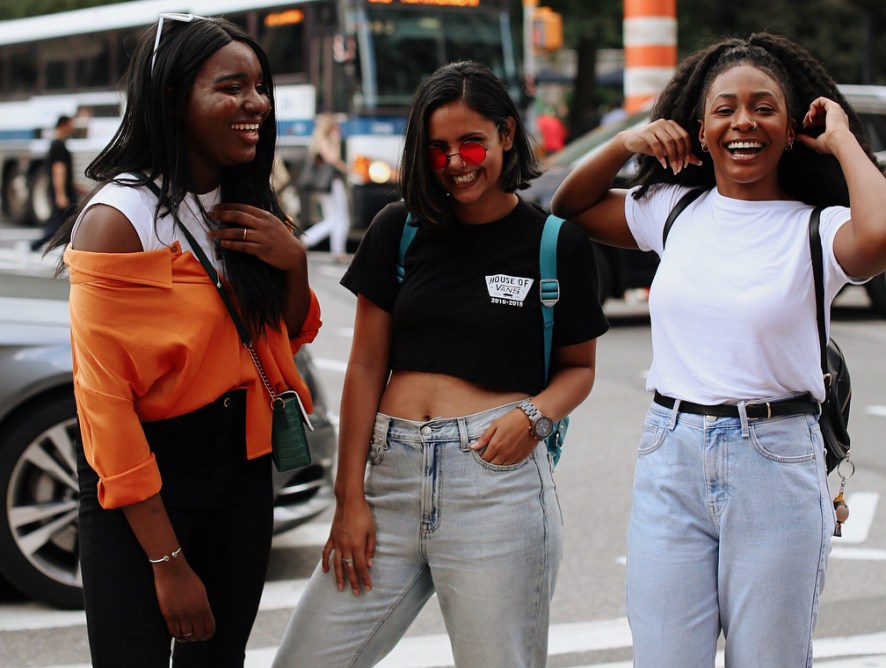Makeup lines have recently stepped up their efforts to make more inclusive products. We’re slowly but surely watching the beauty industry move in the right direction. One person who’s nailed creating diversity in the beauty industry? None other than Rihanna, who sent the beauty industry reeling after releasing her 40-shade foundation line as part of her beauty brand, Fenty. It came at a time where big brands like Tarte were releasing foundations with only five to six deeper shades, and many women were still struggling to find makeup that catered to their skin tones.
As wonderful as this progress is, I think we’ve all grown weary of the beauty industry viewing diversity as just a trend because it’s so much more than that. Diversity is the foundation (pun intended) that beauty is built upon. Inclusivity should be an expectation, not a luxury. I spoke with some College Fashionista community members to get their take on diversity in the beauty industry and why we absolutely need more of it.
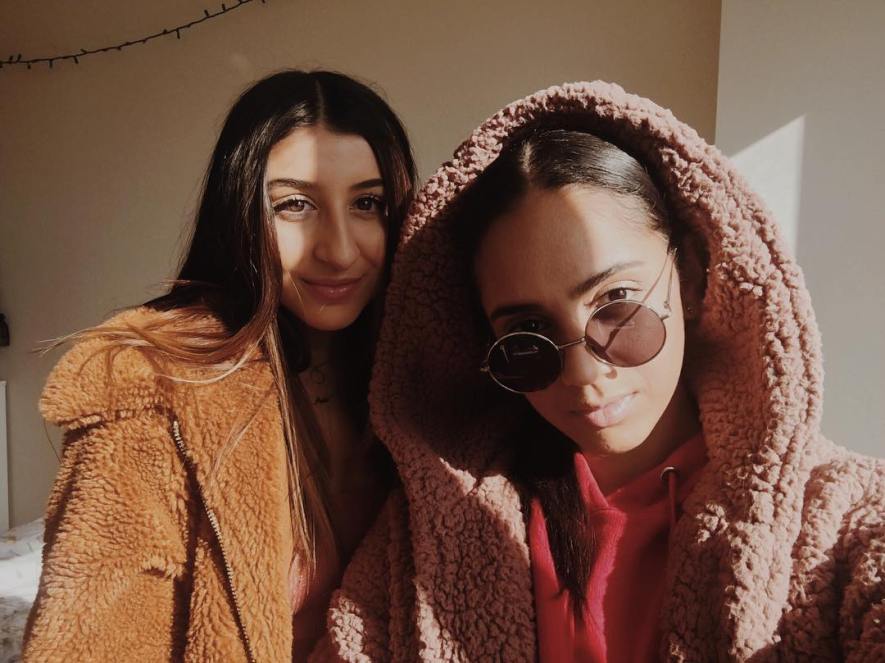
PHOTO: Arianna Shaghaghi
Kat Tinsley, an active community member at Sarah Lawrence College, finds that social media stars and celebrities are bringing the conversation of diversity into the limelight. “I feel like the conversation has always been present, but social media and influencers, like Jackie Aina and mega-star Rihanna, forced people to actually sit down and listen.”
Tinsley’s personal experiences with not being able to find her shade of makeup are shared with her family members, who have also voiced their frustrations, fueling her belief that the solution to the is problem is having honest conversations. “My mother has never worn makeup, and it’s mainly because she has never been able to find products that work for her,” Tinsley says. “Being Puerto Rican and African American, my entire family looks different and is filled with so many different and diverse brown shades. But all of us struggle with finding products that really work for us. I think companies need to take the time to reach out to people of color (POC). Because by making foundations, lipsticks, blushes, etc., that work for POC, ultimately the brand can benefit from it because they have more consumers to sell to.”
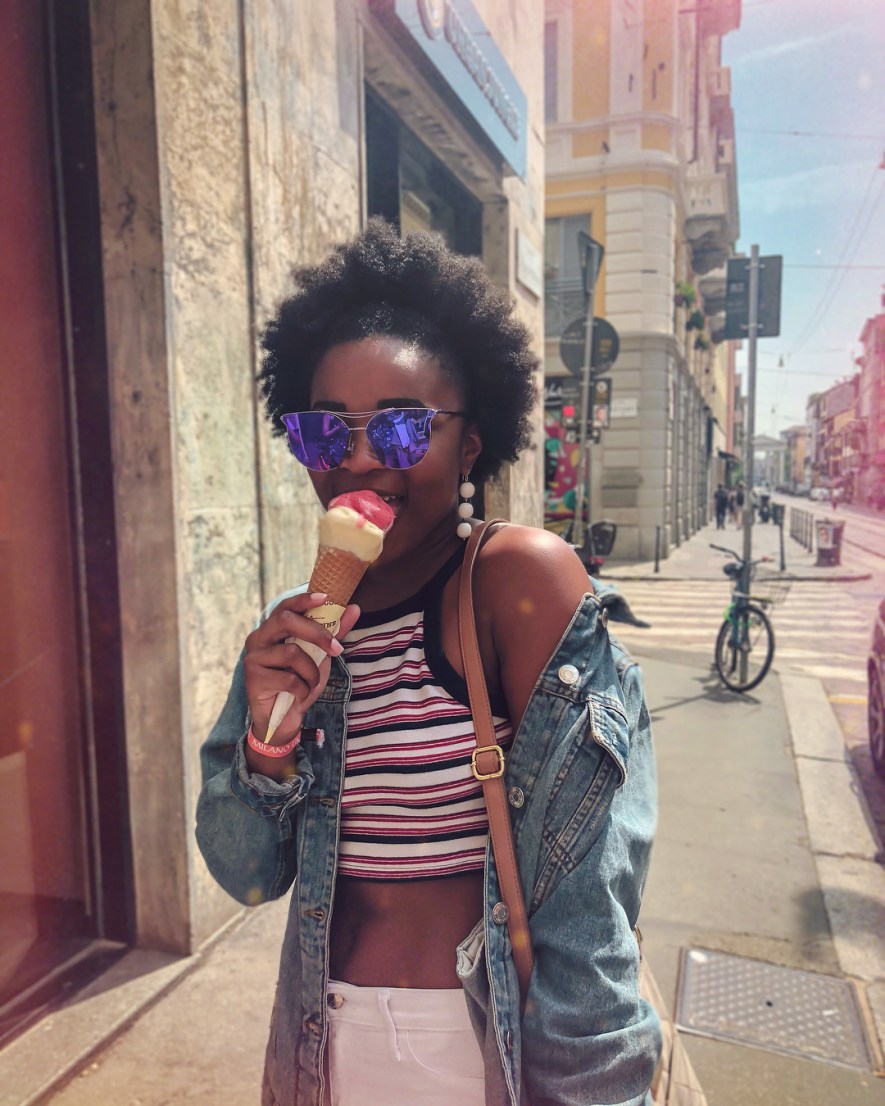
PHOTO: Nikki Paige
Karina Mbulo, blogger and community member at Pace University, has seen the beauty industry take a turn for the positive as well, but she hopes that brands will be more inclusive because of their values, not because they need to react to harsh responses online.
Mbulo believes one way to address the inconsistency of having a color-inclusive beauty line is just to be color-inclusive lines from the start. “In the future,” she says, “I hope to see beauty brands become inclusive from the beginning, not just from backlash. And not just because they feel it would be a good marketing move, but because there are hundreds and thousands of shades of every person buying makeup, and there is a market brands are ignoring and putting on the back burner. [I’m] someone who has always had an issue with having to find makeup and not being able to just order something online. I always have tested it in-store first to make sure ‘deep’ isn’t just honey-colored. Diversity in the beauty industry is of great importance to me. Catering to people of color doesn’t just stop with dark shades that would be considered ‘light-skin.’ It means catering to as many shades in the spectrum as possible. It is like saying that these darker shades aren’t as pretty, and as many can attest, that is not the case. Our standard of beauty needs to change fast.”
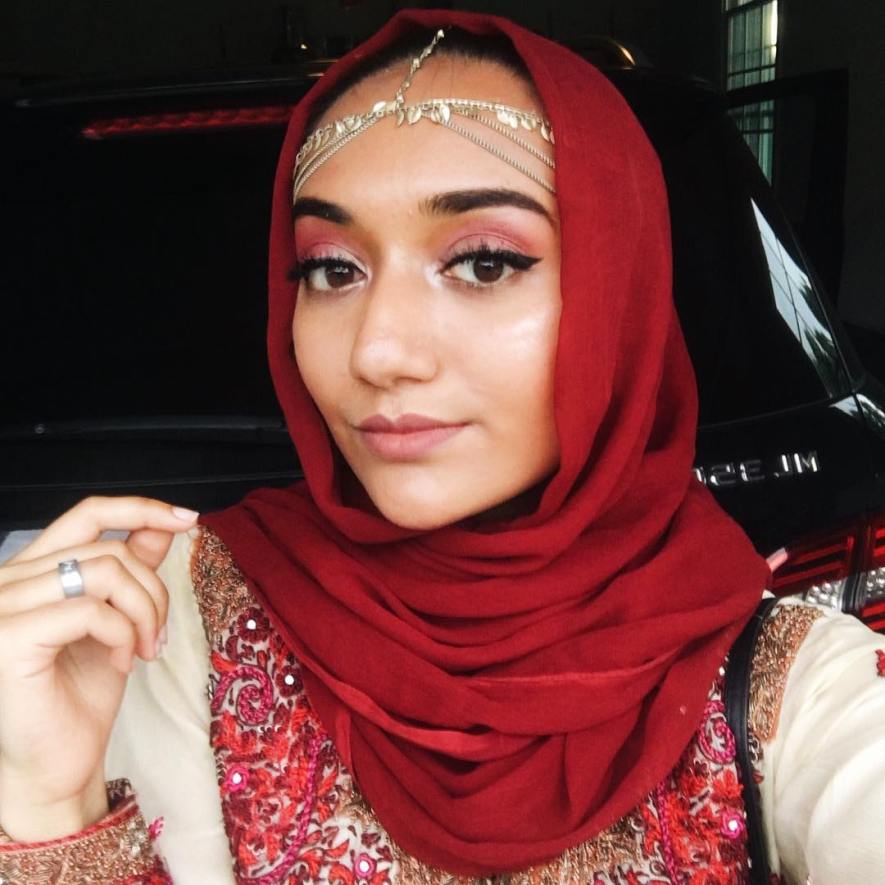
PHOTO: Yusra Siddiqui
Community member and editorial fellow from Philadelphia University Bri Gibbs finds that lack of diversity can be an isolating, negative experience for the user and the brand.
“I think diversity in the beauty space needs to be worked on because no one should ever feel excluded from [a] selection [of products] because it’s more focused on one type of person than another,” she says. “This drives away business and can give the company or supplier a false image that it didn’t even realize it was portraying just because of one choice.”
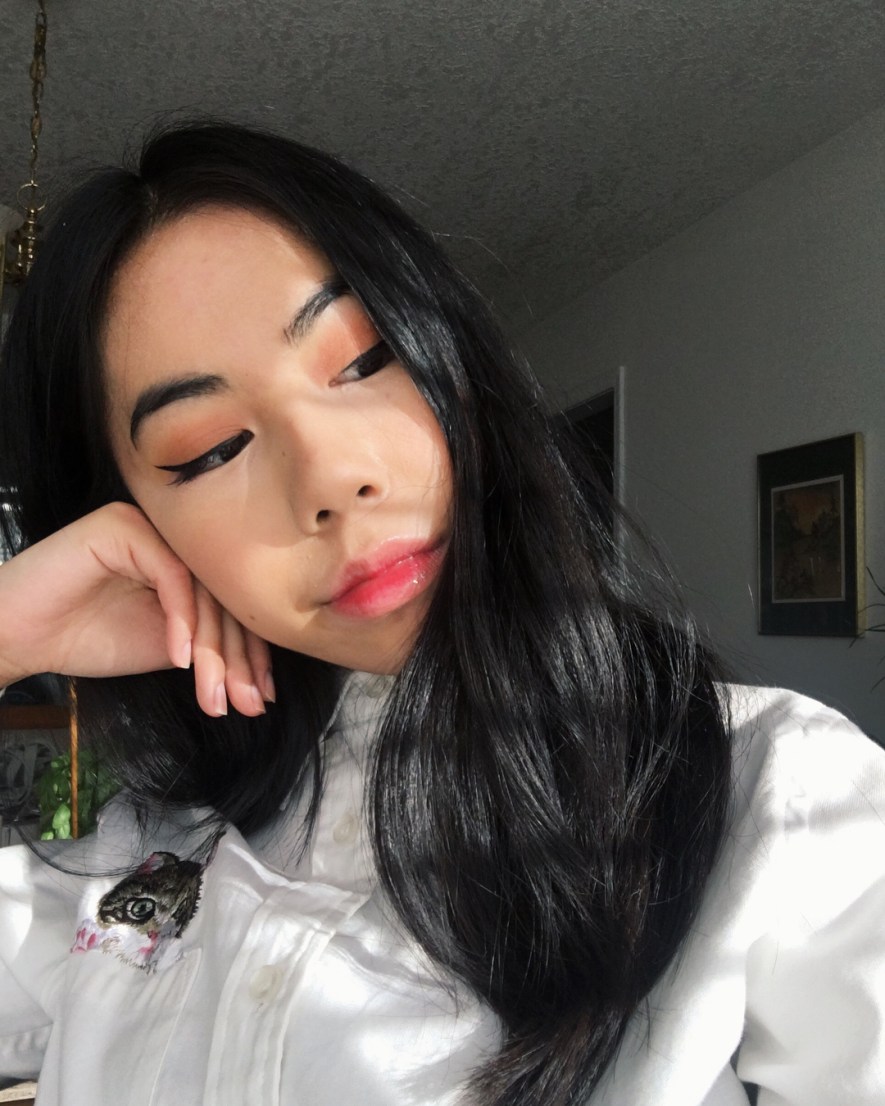
PHOTO: Jade Sayson
Whittier College student and community member Sumitra Bernardo believes diversity comes in several forms. Not only does the industry fail to cater to women of color, but women who don’t fit the standard of perfect as well. Acne, body shapes, and skin textures are all other features that need representation because we need all women to be seen.
“This conversation has always been happening,” Bernardo shares, “it just has not been always in the mainstream limelight. A lot of consumers would bring up this conversation, but it was a choice of these makeup brands to react toward the issue, instead of simply dismissing the conversation. Makeup should not be a one-size-fits-all or most.”
Bernardo continues, “I believe there should be more diversity in beauty not just within the skin tones of the models and the products but also with the type of skin that is being shown. I hardly see models who have acne on their skin. It would be nice to see this because it would show the consumer representation within the range of skin types and true body positivity. Embrace the acne, facial hair, no facial hair, and multiple skin tones. It displays realness. It also shows that beauty and makeup do not have to make you look flawless but make you feel beautiful in the skin you are in.”
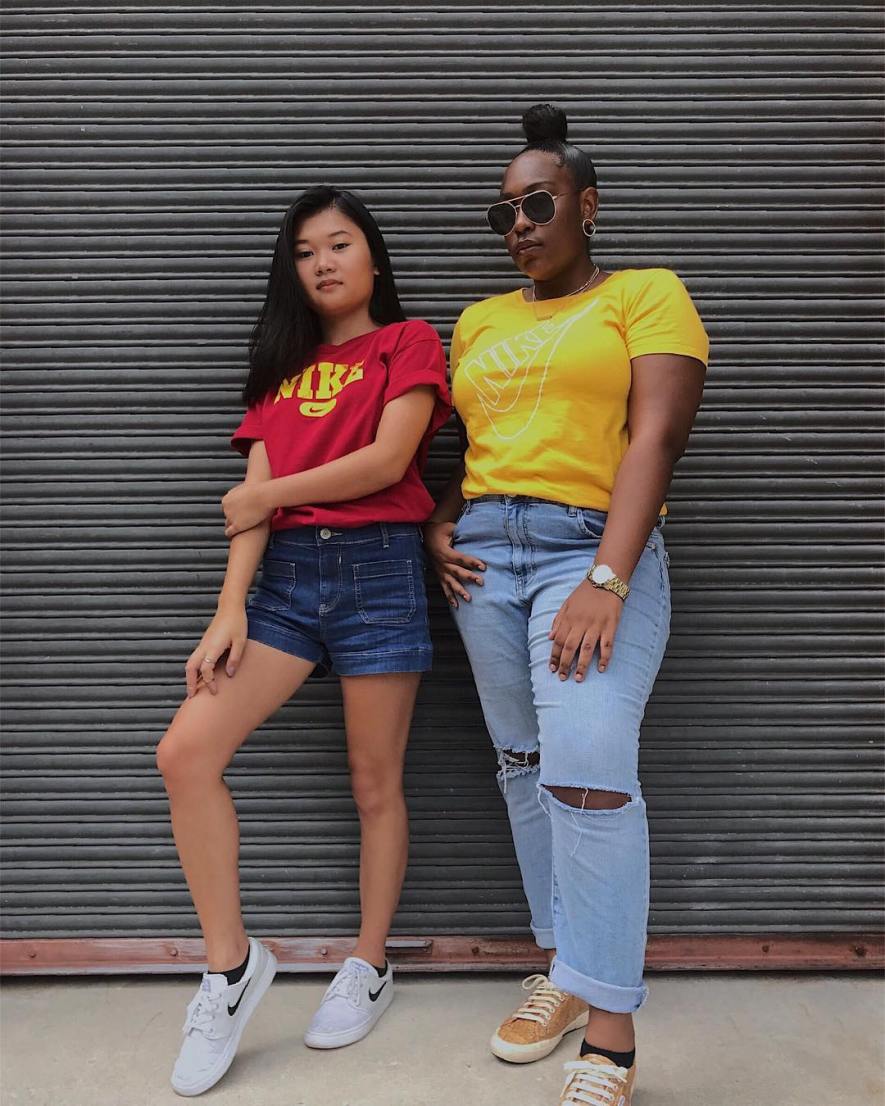
PHOTO: Aniyah Morinia
Diana Kempf, a student from Liberty University, like many of us, has faith in the beauty industry. She looks forward to seeing brands embrace and showcase every type of person and form of beauty.
“I do believe that there is inconsistency within the beauty business,” Kempf says. “However, it is getting better, and different brands are developing wider varieties of shades and choices to choose from. All of us are so different in every way. Our skin shades are different, and our features are different. Of course it would be impossible to cater to literally every single individual, but there should always be more effort in improving the beauty space.
“If I could say anything to beauty companies in regards to diversity, I would always emphasize the idea that everyone is unique,” she continues. “We are all so different in the best way possible, but we all need beauty brands that give us confidence and enhance our individuality and our unique beauty, The truth of the matter is, we are all beautiful people in our way, and that is something that I find so lovely about human beings.”
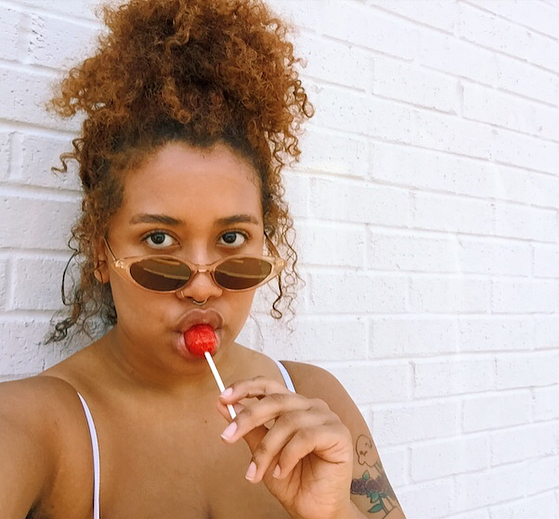
PHOTO: Ellenina Iacobucci
From the stories shared from our community, it’s clear that makeup is more than just a product. It’s a tool for self-expression and a way to make yourself feel just a little more confident. Every beauty lover deserves to find the product that makes them feel that way. The beauty industry should fit everyone under its umbrella, and not just the one Rihanna sings about.
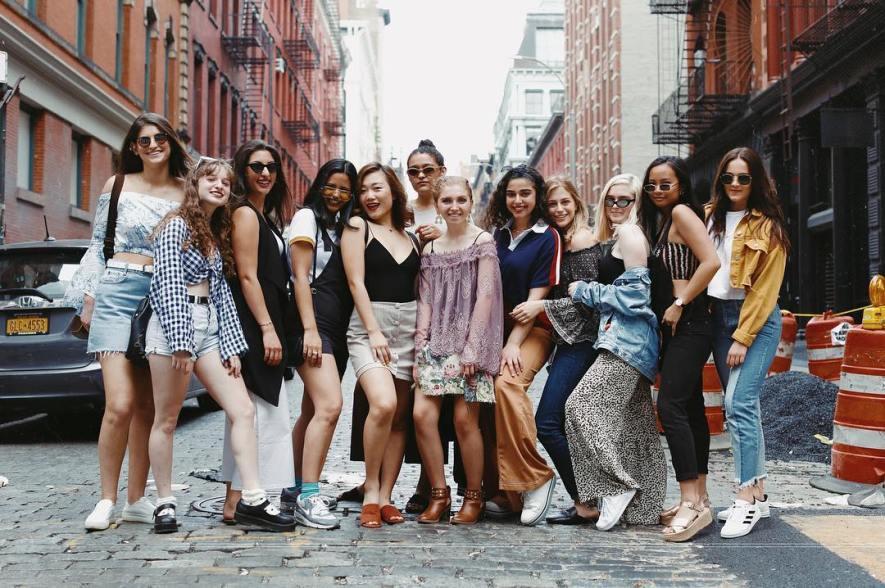
PHOTO: Sarah Gargano
What are your thoughts on how we can improve diversity in the beauty industry? Comment below!
Opening image by Jennifer Motaval

